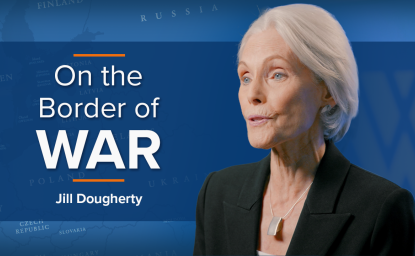Fighting Terrorists While Seeking Peace
Terrorists around the world terrorize for different reasons. Former Congressman Lee Hamilton says our long-term policies must recognize this.
Terrorists around the world terrorize for different reasons. Former Congressman Lee Hamilton says our long-term policies must recognize this.
It is hard to imagine anything more horrible than taking a school hostage and then shooting children in the back as they flee. Yet that is precisely what happened in Beslan, Russia this month, and, sadly, it was not extraordinarily out of place in today's world.
The terrorists in Beslan share a commonality with those who flew planes into buildings in New York and Washington, detonated bombs aboard trains in Madrid, or blew up buses in Jerusalem. The perpetrators of these and other acts of terrorism around the globe murder innocent civilians on behalf of their cause. Their actions are premeditated, their methods are appalling, and their intent is to terrorize a wider audience.
Yet terrorists around the globe are not a monolithic group. The world is large and complicated. People commit acts of terrorism for different reasons. Those who killed in Beslan arose out of a movement that demands Chechen independence from Russia. Tamil terrorists who kill in Sri Lanka also demand independence. Islamist terrorists in Indonesia want an Islamic state. Palestinian terrorists seek a nation and reject Israel. Marxist terrorists in Colombia want a new government. Al Qaeda terrorists who struck us on 9/11 acted on behalf of a larger vision – a radical ideology and a hatred of the U.S. and its policies. Sadly, the list goes on and on.
We can all agree that those who commit acts of terror must be eliminated. It is simply not acceptable to target innocent civilians to make a point on behalf of a political or religious agenda. But the long-term policies needed to tackle these unique situations must differ, and effectively address the particularities of the differing conditions that give rise to terrorism.
Take Russia's policy towards Chechnya. Over the last decade, the Russian government has responded to Chechen separatism by brutalizing the breakaway republic, killing tens of thousands of people, and installing one puppet leader after another, often through elections that are clearly rigged. With each attempt to quash the separatist movement with overwhelming force, acts of terrorism by Chechen separatists have grown in size and scope, most recently in the outrage in Beslan.
The Russian government should act vigorously to protect its people and territorial integrity. But its Chechen policy has not worked. There must be more than vengeance: there needs to be a political solution to the conflict in Chechnya. Russia must work with Chechens willing to reject violence, permitting them a degree of legitimate self-government. By choosing, instead, to act with relentless and sometimes uncontrolled force, Russia has added fuel to the fires that give rise to terrorism, and further radicalized the Chechen population. In its current form, Russia's Chechen policy will lead to more violence, not less.
This highlights a unique dilemma for the United States: how to respond to unsavory actions by our allies in the war on terror. Russia has provided critical support to our campaign against al Qaeda, and Americans rightly stand shoulder to shoulder with the Russian people in their grief and outrage over Beslan. But just as we find the terrorist attack abhorrent, Americans should be deeply troubled by actions taken by President Putin in the wake of the attack, in the name of combating terrorism, that have significantly rolled back democracy in Russia.
This is not an exceptional event in the war on terror. Since 9/11, a number of governments have undertaken broad crackdowns on individual freedoms and human rights in the name of combating terrorism. In Chechnya, Russia, and around the world, repressive actions create more terrorists than they remove – it has been demonstrated that closed societies are more likely to be incubators for terror. Thus for practical as well as moral reasons, the U.S. should not let the war on terror become a justification for such actions.
Unfortunately, Americans and people around the world are learning a lot about terrorism. We have learned that terrorists everywhere are joined by their horrific methods, but that they kill and terrorize for different reasons. In fighting back, all of us must focus on two goals: eliminating terrorist networks by killing or capturing terrorists, and finding an effective way to deal with terrorism over the long-term. If the first goal is pursued with total disregard to the second, the terrorists that we kill or capture will be replaced by terrorist recruits more embittered, and emboldened, than their predecessors.
This was terribly clear in Beslan. Those responsible for the killing must be met with an iron fist; those Chechens seeking a peaceful solution should be met with an open hand.


